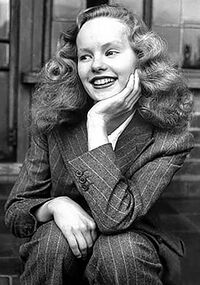Union of Independents (Gylias): Difference between revisions
(Created page with "{{Infobox political party | name = Union of Independents | logo = | colorcode = {{G-UI/meta/color}} | foundation = 1961 | ideology = {{plainlist| * Anarchism in Gylias#Righ...") |
mNo edit summary |
||
| Line 28: | Line 28: | ||
The party benefited from the non-inscrits' breakthrough in the 1990s, increasing its first preference vote and seats. It took an ambiguous position towards the [[Mathilde Vieira government]], but supported the [[Decleyre Summit]] and creation of the [[Social Partnership Program]]. | The party benefited from the non-inscrits' breakthrough in the 1990s, increasing its first preference vote and seats. It took an ambiguous position towards the [[Mathilde Vieira government]], but supported the [[Decleyre Summit]] and creation of the [[Social Partnership Program]]. | ||
It gained seats in the [[Gylian federal election, 2020|2020 federal election]] after [[ | It gained seats in the [[Gylian federal election, 2020|2020 federal election]] after [[Æþurheim]]'s civil war became an election issue, and provides outside support to the [[Lena Haidynraix government]]. | ||
==Ideology== | ==Ideology== | ||
Latest revision as of 19:18, 24 April 2021
Union of Independents | |
|---|---|
| Founded | 1961 |
| Ideology | |
| Political position | Anarchism: Right-wing De facto: Left-wing |
| Colours | Gold |
| Website | |
| http://www.ui.gls/ | |
The Union of Independents (French reformed: Union des indépendants), abbreviated UI, is a Gylian political party, part of the Non-inscrits bloc.
It is an anarchist formation advocating market anarchism.
History

The UI was founded in 1961, as part of a proliferation of new parties after electoral reform. It was established by Ţaisa Eşal, then an independent member of the Popular Assembly. It was envisioned from the start as a market anarchist formation in the tradition of Lucretia Pecunia Mercator.
It initially found limited success federally: between 1962 and 1976, Ţaisa served simultaneously as its sole Deputy and Senator. However, she was the party's strongest asset, becoming renowned as a witty provocateur and appealing advocate of market anarchism. Its performance in municipal and regional elections was slightly better.
Ţaisa retired from Parliament in 1976, after which time the party began to gain seats. During the wretched decade, it opposed the Aén Ďanez government, and gained two sister parties: the Free and Voluntaryist Union and Rally for a Free Society. It supported the Filomena Pinheiro government, and subsequently reaped the benefits of an increase in popularity after the dérive au droite.
The party benefited from the non-inscrits' breakthrough in the 1990s, increasing its first preference vote and seats. It took an ambiguous position towards the Mathilde Vieira government, but supported the Decleyre Summit and creation of the Social Partnership Program.
It gained seats in the 2020 federal election after Æþurheim's civil war became an election issue, and provides outside support to the Lena Haidynraix government.
Ideology
The UI is an anarchist formation. It mainly advocates market anarchism and individualist anarchism. It strongly favours emancipated markets as the basis of economic organisation, and envisions a society based on mutualism, free associations, cooperatives, and community markets.
Although its advocacy of market anarchism makes it conventionally classified as right anarchist, its championing of organised labour and cooperatives and opposition to big business and monopolies keep it firmly on the left-wing by ordinary standards.
In the market anarchist tradition, the party cultivates an image of androgynous, decadent glamour inspired by Weimar culture, and enjoys fame as a harmlessly eccentric presence in mainstream politics.
Symbols
The UI uses a shade of gold as its official colour.
Popular support
The UI is generally a small-to-moderate presence in federal elections, with better performances in local elections. While the majority of its support is concentrated in cities, it has a notable following in smaller cities and villages, where its nostalgic glamour and advocacy of agorism have a stronger resonance, giving it something of a "utopian–conservative" role.